
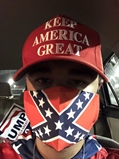
BLACK LIVES THAT MATTER
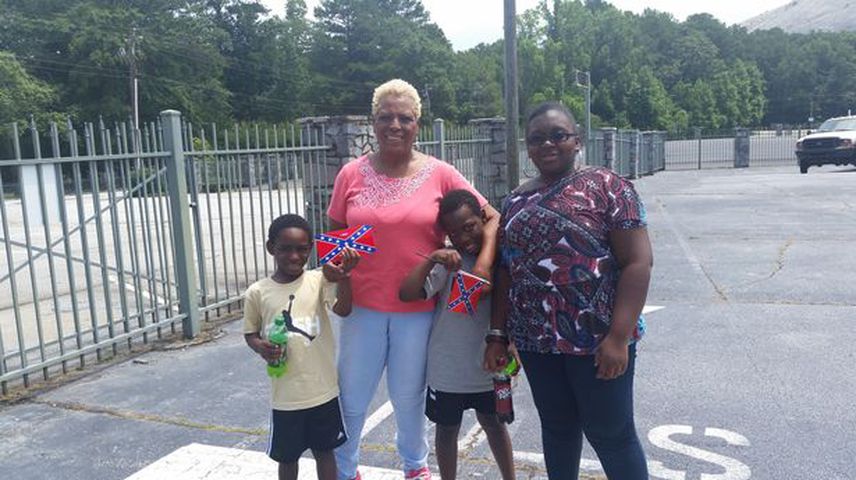

BLACKS AND THE CONFEDERATE BATTLE FLAG
Another Confederate battle flag lover was Anthony Hervey, who in this May 8, 2000, file photograph holds a flag while standing underneath the Confederate monument in Oxford, Miss. Hervey, 49, was killed on July 19, 2015, when his 2005 Ford Explorer left the roadway and overturned on Mississippi Highway 6 in Lafayette County, the Highway Patrol said. Hervey, of Oxford, had drawn attention over the years for opposing efforts to change the flag. He said he dressed in Rebel soldier garb to honor blacks who served with the Confederacy during the Civil War. (Bruce Newman/The Oxford Eagle via AP, File)
Another Confederate battle flag lover was Anthony Hervey, who in this May 8, 2000, file photograph holds a flag while standing underneath the Confederate monument in Oxford, Miss. Hervey, 49, was killed on July 19, 2015, when his 2005 Ford Explorer left the roadway and overturned on Mississippi Highway 6 in Lafayette County, the Highway Patrol said. Hervey, of Oxford, had drawn attention over the years for opposing efforts to change the flag. He said he dressed in Rebel soldier garb to honor blacks who served with the Confederacy during the Civil War. (Bruce Newman/The Oxford Eagle via AP, File)
Credit: Charlotte Holland
Sometimes black support of the Confederate flag is a family affair. That was certainly the case on Saturday, Aug. 1, 2015, when Freya Powell of southwest Atlanta (red shirt) drove to Stone Mountain Park with her nephews — Jacody Terry, 4, and Larrese Clayton, 8 — and her goddaughter, Karen Edwards, to support the battle flag during a rally that drew hundreds to the world's largest Confederate monument. Powell said her nephews wanted to know what all the fuss was about. "They asked, 'Aunty, why do they want to move the flags? We like them,'" Powell said. A history buff, Powell finds the recent controversy over all things Confederate odd. “I’ve been coming to Stone Mountain for 40 years and never encountered one problem,” she said, holding a Confederate flag bumper sticker. “We don’t believe the flag represents racism. Stone Mountain is history. The person who wants to blast the carvings off the mountain is someone who wants to eradicate history." (PHOTO: Charlotte Holland of Commerce) (REPORTING: Tammy Joyner/ajc staff writer)
Sometimes black support of the Confederate flag is a family affair. That was certainly the case on Saturday, Aug. 1, 2015, when Freya Powell of southwest Atlanta (red shirt) drove to Stone Mountain Park with her nephews — Jacody Terry, 4, and Larrese Clayton, 8 — and her goddaughter, Karen Edwards, to support the battle flag during a rally that drew hundreds to the world's largest Confederate monument. Powell said her nephews wanted to know what all the fuss was about. "They asked, 'Aunty, why do they want to move the flags? We like them,'" Powell said. A history buff, Powell finds the recent controversy over all things Confederate odd. “I’ve been coming to Stone Mountain for 40 years and never encountered one problem,” she said, holding a Confederate flag bumper sticker. “We don’t believe the flag represents racism. Stone Mountain is history. The person who wants to blast the carvings off the mountain is someone who wants to eradicate history." (PHOTO: Charlotte Holland of Commerce) (REPORTING: Tammy Joyner/ajc staff writer)
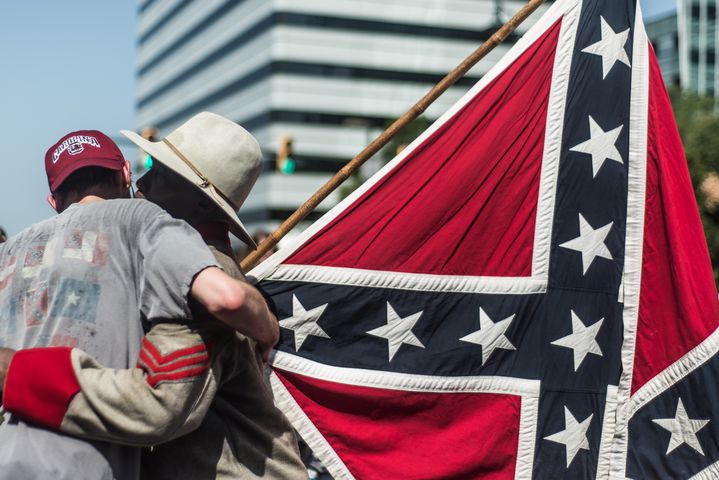
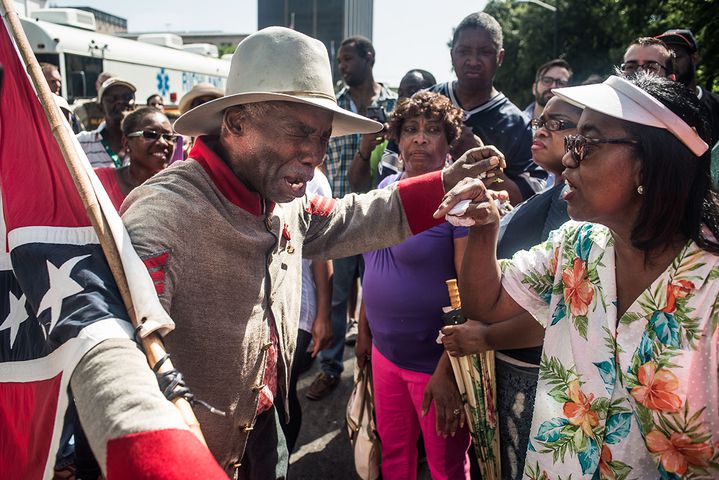
Credit: Sean Rayford
No, we’re taking about regular black folk who profess an “irregular” love, if you will, for a flag reviled by many African-Americans as a racist “the South shall rise again” symbol of oppression. Here, H.K. Edgerton (right) gets a hug from a man in Columbia, S.C., on July 10, 2015, the day that South Carolina removed the Confederate battle flag from Statehouse grounds. (Photo by Sean Rayford/Getty Images)
No, we’re taking about regular black folk who profess an “irregular” love, if you will, for a flag reviled by many African-Americans as a racist “the South shall rise again” symbol of oppression. Here, H.K. Edgerton (right) gets a hug from a man in Columbia, S.C., on July 10, 2015, the day that South Carolina removed the Confederate battle flag from Statehouse grounds. (Photo by Sean Rayford/Getty Images)
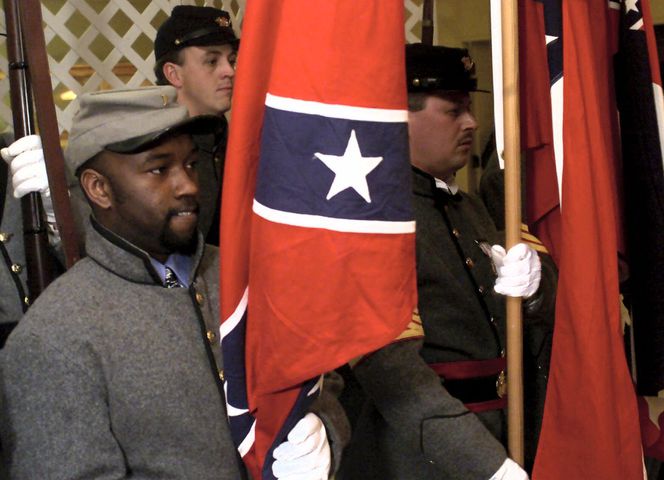
Credit: Sean Rayford
But the most prolific black defender of Confederate heritage, at least in terms of appearances, is H.K. Edgerton, a former NAACP leader from North Carolina. Here he is in front of the South Carolina Statehouse grounds in Columbia, engaged in an intense moment on July 10, 2015, when emotions ran high, both pro and con, over South Carolina's removal of the battle flag from Capitol grounds. (Photo by Sean Rayford/Getty Images)
But the most prolific black defender of Confederate heritage, at least in terms of appearances, is H.K. Edgerton, a former NAACP leader from North Carolina. Here he is in front of the South Carolina Statehouse grounds in Columbia, engaged in an intense moment on July 10, 2015, when emotions ran high, both pro and con, over South Carolina's removal of the battle flag from Capitol grounds. (Photo by Sean Rayford/Getty Images)
Credit: BILL JOHNSON
The late Mr. Hervey found a kindred spirit in Marcus Daniels. Dressed in the traditional battle uniform of a Confederate soldier, Marcus Daniels stood at attention on Saturday, Jan. 20, 2001, prior to posting colors at the annual Lee-Jackson Banquet hosted by the Sons of Confederate Veterans in Leland, Miss. Daniels had accompanied Hervey. (AP Photo/Delta Democrat Times, Bill Johnson)
The late Mr. Hervey found a kindred spirit in Marcus Daniels. Dressed in the traditional battle uniform of a Confederate soldier, Marcus Daniels stood at attention on Saturday, Jan. 20, 2001, prior to posting colors at the annual Lee-Jackson Banquet hosted by the Sons of Confederate Veterans in Leland, Miss. Daniels had accompanied Hervey. (AP Photo/Delta Democrat Times, Bill Johnson)
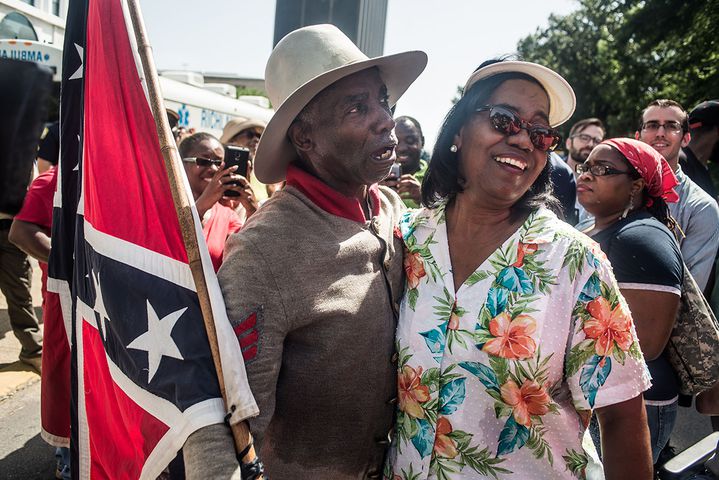
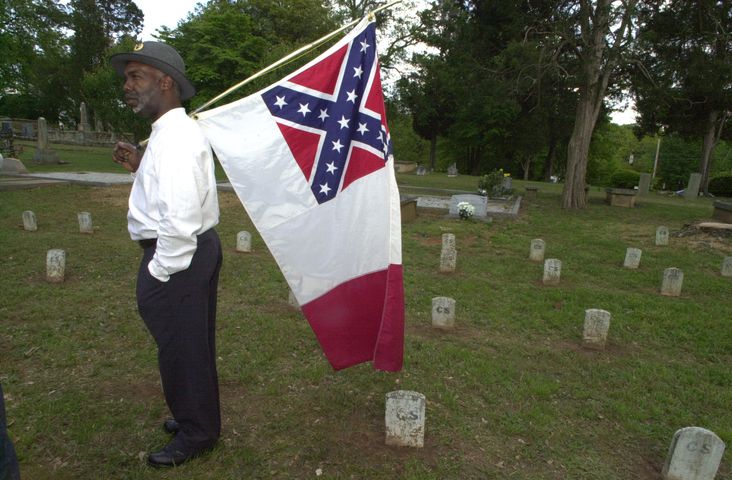
Credit: Sean Rayford
H.K. Edgerton gets a hug and a smile from the same woman who was once all up in his face in front of the South Carolina Statehouse grounds on July 10, 2015, in Columbia. What is the basis of Edgerton's passion for the Confederate flag? His website, Southern Heritage 411.com, asserts that during the Civil War, there were thousands of blacks "who served willingly as Confederate soldiers and almost four million other blacks who stayed on the farms, plantations and factories in the South of their own free will. These blacks supported the Confederate army by supplying them with food and supplies." It goes on to argue that "blacks living in the United States today ... have a right to be proud of their ancestors' service to the South. The Confederate Battle Flag is their flag also." (Photo by Sean Rayford/Getty Images)
H.K. Edgerton gets a hug and a smile from the same woman who was once all up in his face in front of the South Carolina Statehouse grounds on July 10, 2015, in Columbia. What is the basis of Edgerton's passion for the Confederate flag? His website, Southern Heritage 411.com, asserts that during the Civil War, there were thousands of blacks "who served willingly as Confederate soldiers and almost four million other blacks who stayed on the farms, plantations and factories in the South of their own free will. These blacks supported the Confederate army by supplying them with food and supplies." It goes on to argue that "blacks living in the United States today ... have a right to be proud of their ancestors' service to the South. The Confederate Battle Flag is their flag also." (Photo by Sean Rayford/Getty Images)
Credit: RENEE' HANNANS
H.K. Edgerton held the Third National Flag of the Confederacy 1865 during a visit to Stone Mountain Cemetery in Stone Mountain, Ga., on April 26, 2000, in observance of Confederate Memorial Day. (AJC file photo / Renee Hannans)
H.K. Edgerton held the Third National Flag of the Confederacy 1865 during a visit to Stone Mountain Cemetery in Stone Mountain, Ga., on April 26, 2000, in observance of Confederate Memorial Day. (AJC file photo / Renee Hannans)
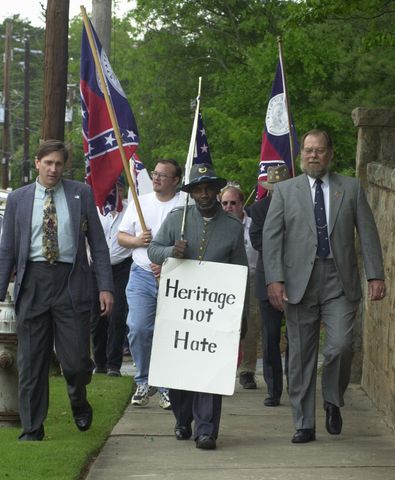
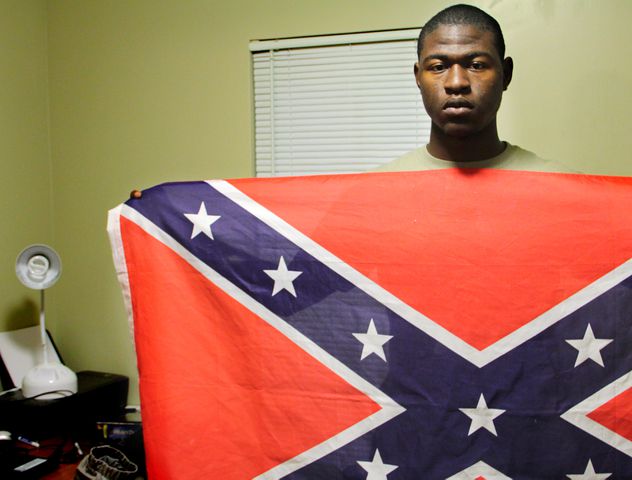
University of South Carolina Beaufort senior Byron Thomas, seen here in 2011, is another black man who is a battle flag supporter. It was in his state that nine black Christians were slaughtered on June 17, 2015, in a historic Charleston church by a white gunman who joined them for Bible study before opening fire. In the aftermath of a crime so horrifying it sparked the Rebel flag’s removal from the grounds of the South Carolina Capitol; Thomas explained his unwavering embrace of that flag in a video on CNN and in an opinion piece in The Washington Post. To him, it represents freedom of speech, Southern heritage, regional pride and ancestral honor — one of his forebears, Benjamin Thomas, was a black Confederate cook. Yet Thomas said he has been persuaded that while the battle flag will always have a place in his home, it shouldn’t necessarily fly over the Statehouse. (AP Photo/The (Hilton Head) Island Packet, Rachel Heaton)
Credit: RENEE' HANNANS
H.K. Edgerton, flanked by Fred Adolphus on the left and Richard L. Palmer on the right, led the way to Stone Mountain City Hall along Main Street on April 26, 2000, to protest the taking down of their flag pole in Stone Mountain Cemetery. His sign states what Edgerton believes Confederate flags represent: heritage, not hate. (AJC file photo / Renee Hannans)
H.K. Edgerton, flanked by Fred Adolphus on the left and Richard L. Palmer on the right, led the way to Stone Mountain City Hall along Main Street on April 26, 2000, to protest the taking down of their flag pole in Stone Mountain Cemetery. His sign states what Edgerton believes Confederate flags represent: heritage, not hate. (AJC file photo / Renee Hannans)


Credit: JOHN AMIS
The above image has not been Photo shopped. It’s an unaltered picture of an actual person — North Carolina native H.K. Edgerton during a stop in Canton, Ga. This man is arguably the most frequently sighted member of a rare group: black Americans who support and defend the Confederate battle flag. (John Amis/special/2002 file photo)
The above image has not been Photo shopped. It’s an unaltered picture of an actual person — North Carolina native H.K. Edgerton during a stop in Canton, Ga. This man is arguably the most frequently sighted member of a rare group: black Americans who support and defend the Confederate battle flag. (John Amis/special/2002 file photo)
Honoring Confederate Dead


Stars and Bars on the steps. Honoring the Confederate veterens who fought and died for their country.
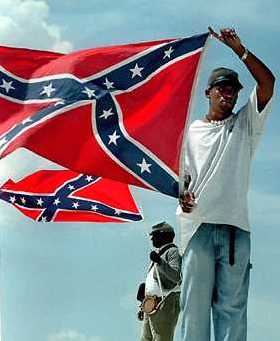
H.K.Edgerton and Confederate Flag; Asville, N.C.
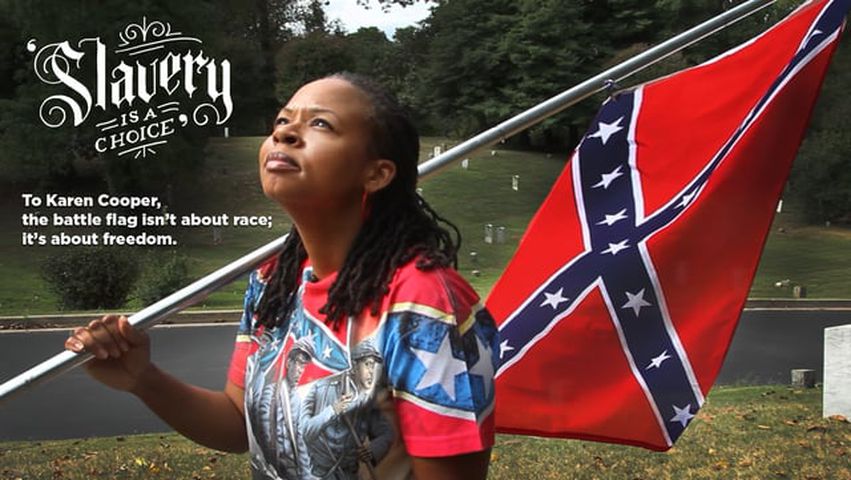
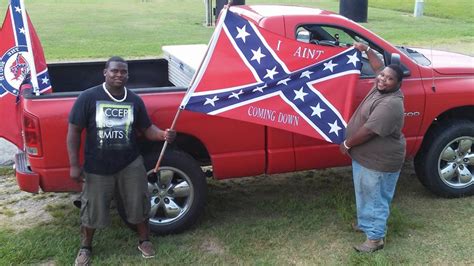
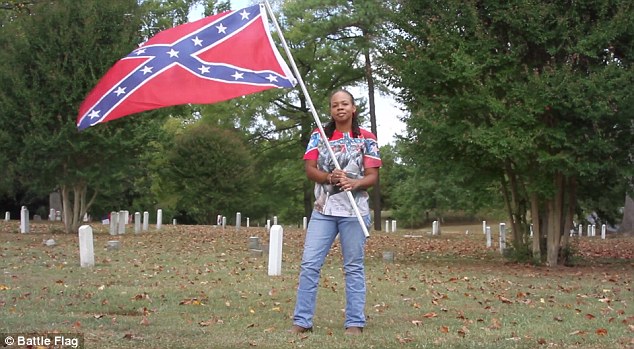
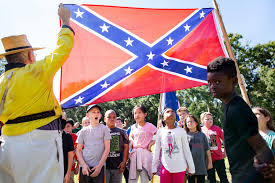
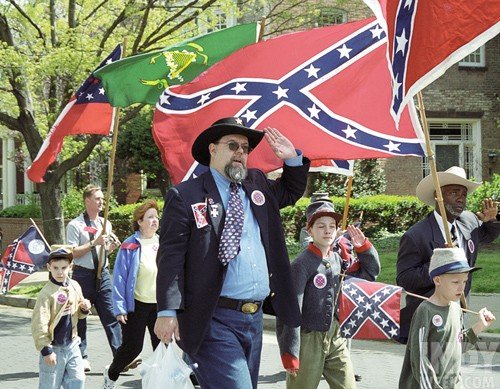
CHILDREN OF THE CONFEDERACY